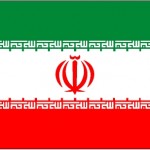Friday
Aug132010
Iran's Nukes: The CIA's Latest Analysis (Thielmann)
 Friday, August 13, 2010 at 12:09
Friday, August 13, 2010 at 12:09  Greg Thielmann, a former analyst in the State Department, writes for the Arms Control Association:
Greg Thielmann, a former analyst in the State Department, writes for the Arms Control Association:Comments by senior U.S. officials in 2010 have continued to endorse the principal conclusions of the 2007 National Intelligence Estimate (NIE), "Iran: Nuclear Intentions and Capabilities." This may come as a surprise for those accustomed to seeing that earlier document described by pundits and journalists as "flawed," or "erroneous." In fact, from the moment the NIE's sanitized Key Judgments were released in late November 2007, the estimate has been subject to virulent criticism, particularly by those who regret that it did not provide justification for a preventive attack on Iran's nuclear program.
Many critics have impugned the motives of its authors. Former CIA Director James Woolsey has called the NIE "deceptive." Rep. Peter Hoekstra, Ranking Minority Member (and former Chairman) of the House Intelligence Committee has called it "a piece of trash."
There is some considerable irony in hearing such criticism from those intimately familiar with the inner workings of the intelligence community, who seemed to have sleep-walked through the serious professional lapses of the 2002 NIE on Iraq WMD.
It is time to take another close look at the claims made by the Iran Nuclear NIE in light of the critical choices now confronting policy makers.
The most important conclusions from the fall of 2007 still obtain:
* Iran had been working steadily on the facilities and expertise for
enriching uranium, which would eventually allow it to make fissile material for a bomb, if it chose. (Making fissile material is generally considered the most technically demanding and time-consuming hurdle to developing a
nuclear weapons capability.)
* For many years, Iran had had a government-directed and clandestine nuclear weapons program (defined as: "nuclear weapon design and weaponization work and covert uranium conversion-related and uranium enrichment-related work"), but Tehran halted it in the fall of 2003 and the halt lasted at least several
years.
* The estimate indicated that the Department of Energy and the National Intelligence Council were less certain that the halt to these activities represented a halt to Iran's entire nuclear weapons program.
* Iran still faces significant technical problems operating its uranium enrichment centrifuges at Natanz, but would probably be technically capable of producing enough highly enriched uranium (HEU) for a weapon sometime during the 2010-2015 time frame.
* Iran has the scientific, technical and industrial capacity eventually to produce nuclear weapons if it decides to do so. Only an Iranian political decision to abandon a nuclear weapons objective would plausibly keep Iran from producing nuclear weapons.
There has been no retreat from the key historical judgment that Iran halted its nuclear weapons program in 2003 and no advance to a conclusion that Iran had decided to develop nuclear weapons. According to open source information, foreign intelligence services have suggested that some level of nuclear weapons program activity has been underway since 2003. (See, for example, Mark Hosenball, Newsweek, June 28, 2010). It is reasonable to conclude that Iran wants at least to develop the capability to build nuclear weapons.
Yet Lt. Gen. Ronald Burgess, Jr., Director of the Defense Intelligence Agency, said in early 2010 that: "The bottom line assessments of the NIE still hold true. We have not seen indication that the (Iranian) government has made the decision to move ahead with the program." The State Department's July 2010 Compliance Report stated flatly that: "Iran had a comprehensive nuclear weapons development program that was ordered halted in fall 2003."
Director of National Intelligence Dennis Blair reached a similar conclusion in his Annual 2010 Threat Assessment: "We continue to assess Iran is keeping open the option to develop nuclear weapons in part by developing various nuclear capabilities that bring it closer to being able to produce such weapons, should it choose to do so. We do not know, however, if Iran will eventually decide to build nuclear weapons."
If a decision is made to manufacture and deploy nuclear weapons, CIA Director Leon Panetta claims that it would probably take a year for Iran to enrich sufficient uranium from its current stockpile of LEU (following the expulsion of IAEA inspectors) "and another year to develop the kind of weapon delivery system in order to make that viable."
It would appear then that the long-anticipated "Memorandum to Holders", which is expected to update the 2007 NIE, is likely to revise it rather than revoke it by acknowledging that some kind of ongoing research on nuclear weapons is occurring, without questioning the validity of the 2003 halt that was detected or concluding that Iran has definitively decided to build a bomb.
Iran's secret construction of a uranium enrichment facility near Qom, exposed and effectively neutralized in September 2009, deepened suspicions that Iran was interested in developing at least a breakout capability for clandestinely producing fissile material for weapons, independent of its existing LEU stockpiles, which are monitored by the International Atomic Energy Agency.
However, if there were shocking discoveries of unambiguous nuclear weapons intent in the revelations of defectors like Asgari and Amiri, one would have expected to see an alteration in the phraseology used by senior U.S. intelligence officials to describe Iran's nuclear program. This has not happened.
Unfortunately, the U.S. Government has decided to withhold from the American people even the bottom line judgment of the next estimate on this critical issue for U.S. security policy. This means that we will have to do our best to divine what our government thinks it knows and when it is making an educated guess. This also means that the public and the press will continue to be vulnerable to careless or deliberate misinterpretations of estimates by pundits with an axe to grind.

